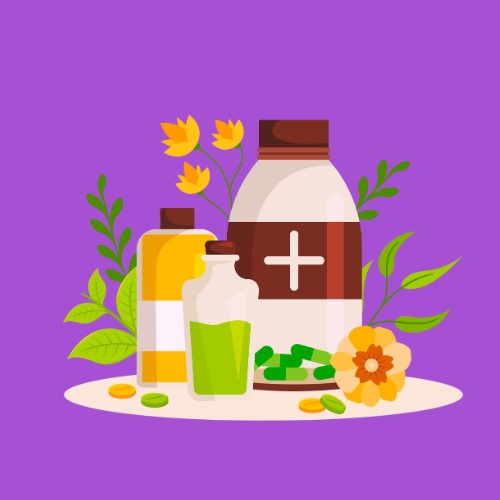Traditional healing practices continue to hold a powerful place in both cultural history and holistic health care.
Figures in these traditions are the apothecary and the herbalist. Though they both use natural remedies, their roles, training, methods, and philosophies differ.
Other titles like a Naturopath who studies nutrition, homeopathy and lifestyle medicine in addition to herbal medicine can also be confused with herbalism and apothecary terms.
Botanists, are plant scientists. They study the life of plants. Whereas a herbalist is a healer who uses plants and other natural substances to enhance.
Aromatherapist
Aromatherapists specialise in the therapeutic use of essential oils, harnessing the aromatic properties of plants for emotional and physical well-being.
They may incorporate aromatherapy into massage, skincare, or inhalation practices.
An alchemist seeks to transform materials into more perfect or valuable forms, aiming for goals like transmuting lead to gold or creating a panacea, often using advanced tools, heat, and a mix of minerals and plants. In contrast, an herbalist focuses on using plants and their parts to support wellness and create natural remedies, working directly with nature to gather ingredients and prepare remedies like salves and tinctures. An alchemist using nature and plants can be combined as ‘Herbal Alchemist’.
Alchemy often crosses over with Apothecaries and Healers’ work. The difference being that Alchemists generally work with chemical reactions while Healers and Apothecaries tend to look towards the natural world and the properties of various plants and herbs to do their work.
Even under these ‘descriptions’ there are other titles or roles that can add to the confusion.
- Home herbalist
- Folk herbalist
- Community herbalist
- Clinical herbalist
- Herbal medicine maker
- Culinary herbalist
- Wildcrafter/forager
- Herbalism teacher
- Herbalist writer
- Aromatherapist
- Botanist
- Alchemist
- Spiritual herbalist
- Witch
A herbalist is a practitioner who uses plants and plant-based remedies to support healing and promote wellness. Herbalists often focus on holistic healing—considering the body, mind, and spirit as a whole.
Herbalist (Holistic and Intuitive Approach):
- Seeks to identify root causes, often addressing lifestyle, emotions, and spiritual health.
- Treatments may include nutritional advice, detox support, and energetic balance.
- Believes in the synergy of whole plants, not just isolated constituents.
- The approach is patient-centered, often blending tradition with intuition.
The word ‘apothecary‘ is derived from apotheca, meaning a place where wine, spices and herbs were stored.
Apothecary (Scientific and Formulative Approach):
- Focus on compounding medications with measurable dosages.
- Treatments are often symptom-based.
- Emphasis on ingredients, dosage accuracy, and chemical interactions.
- The approach leans toward Western biomedical understanding.
The Witch or Herbal Witches

Many see the words “witch” and “herbalist” as interchangeable. Those who work with plants and offer health advice and medicinal products to aid people’s pain or anxiety can be either if you think about it! Or, perhaps the more pertinent reality is that the witch is, at her core, an herbalist.
A witch understands the garden, she keeps books and notes on different seasons, different seeds and fruits. She points out the poisons of the land and plants various florals and herbs that supposedly bring luck and prosperity. Witchcraft, then, implores a mixture of herbalism with whatever makes one’s craft more personal! In the end, a witch and an herbalist are not separated by their work but, instead, united by it.
Before there were online herb databases and easy access to any book you may require for your craft, witches often only had their coven and their rare books and notes to go off of. Herbal witches would keep ingredient lists in their Book of Shadows, which was a tome used to keep their spells safe and secret from any who may wish them harm. These books held everything a witch knew about herbs, from their uses to their toxicity to even how to transform them into an herbal remedy.
Apothecary
one who prepares and sells drugs or compounds for medicinal purposes.
Apothecaries had been around since the middle ages, they were originally part of grocery businesses. Their main products included many herbs and spices.
In England, in 1617, the Society for Apothecaries was established, which broke away from the Grocers’ Company. This meant that apothecaries had a lot more freedom to sell what they wanted.
Apothecaries were recognised by King James I in 1617, they gained huge popularity and were used by many notable people of that time. They had strange concoctions like oil of swallows and syrup of serpents – we probably wouldn’t know what they were selling us!
Theories at that time were seen as supernatural and superstitious and they practiced ‘medieval medicine’ which is best known for its theory of humours.
Humoral Theory
This was an old theory that believed there were four humours which existed as liquids within the body. These were blood, phlegm, black bile and yellow bile. The theory worked on the foundation of balance – an imbalance of the four humours indicated disease.
By the turn of the century, Apothecaries were starting to be outnumbered by Victorian chemists. It is with the 20th century that we see the emergence of the modern pharmacy.
An apothecary is someone who prepares, stores, and sells medicinal preparations, originally including many herbal remedies, while herbalism is the practice of using plants and plant extracts for medicinal and therapeutic purposes. Historically, apothecaries were more institutionalized and relied on written formulas and standardization, whereas herbalism emerged from folk healing traditions passed down through oral tradition and practical experience. Today, the term “herbal apothecary” often refers to a modern herbalist who also prepares and sells custom herbal remedies and products for their clients.
While it’s easy to see how the pharmacy is a direct progression from the apothecary, the call for more regulation and the phasing out of medieval medical practices and remedies and new ‘drugs’ and ‘medications’ were being industrialised.
Apothecary Origins:
- The word “apothecary” derives from the Greek apothēkē, meaning “storehouse.”
- Ancient civilizations such as Egypt, Greece, Rome, and Mesopotamia had early forms of apothecaries.
- During the Islamic Golden Age, apothecaries played a major role in preserving and expanding medical knowledge.
- By the 16th and 17th centuries in Europe, apothecaries were licensed professionals creating medicines for the public.
Herbalist Origins:
Apothecary
- Role:A pharmacist, who prepares, dispenses, and sells medicines and other health products.
- Training & Knowledge:Relies on written pharmacopoeias, standardized education, and established formulas.
- Origin:Evolved from institutionalized medicine, with the word deriving from the Greek “apothēkē” meaning a storehouse for goods, including spices and herbs.
Herbalism
- Herbalism dates back thousands of years, with evidence from China (Shennong Ben Cao Jing), India (Ayurveda), Africa, and Native American traditions.
- The Doctrine of Signatures, a belief that plants resembled the organs they could heal, influenced early Western herbalism.
- In many cultures, herbal knowledge was passed orally, often by healers, shamans, midwives, or folk practitioners.
- Role:Practices the use of plants and plant extracts for medicinal and therapeutic purposes.
- Training & Knowledge:Developed from folk traditions and community practitioners, often passed down through apprenticeship, oral tradition, and practical experience.
- Focus:Emphasizes health promotion and therapy for chronic conditions, using natural plant-based ingredients.
Relationship between Apothecary and Herbalism
- Historical Connection:Historically, the apothecary would sell and prepare herbal remedies, making it a central part of their practice.
- Modern Herbal Apothecary:In a modern context, the term “herbal apothecary” describes a practitioner who combines the practice of herbalism with the preparation and sale of their own custom herbal remedies, such as teas, tinctures, salves, and other products.
- Integration:There is a movement toward integrating traditional herbalism with conventional medicine to provide a more holistic, person-centered approach to healthcare.
Conclusion: Two Traditions, One Purpose
The apothecary and the herbalist represent two powerful traditions in the evolution of medicine—one grounded in early science and the other in ancient nature-based wisdom.
- The apothecary is a forerunner of modern pharmacy, dedicated to precision, formulation, and the growing understanding of chemical compounds.
- The herbalist carries the torch of plant medicine, drawing on thousands of years of traditional knowledge to offer healing that honors body, mind, and spirit.
While their methods differ, both share a commitment to restoring balance, relieving suffering, and using nature as a source of healing. In a world that increasingly embraces both science and tradition, the apothecary and the herbalist are no longer in opposition—but in complementary partnership.



